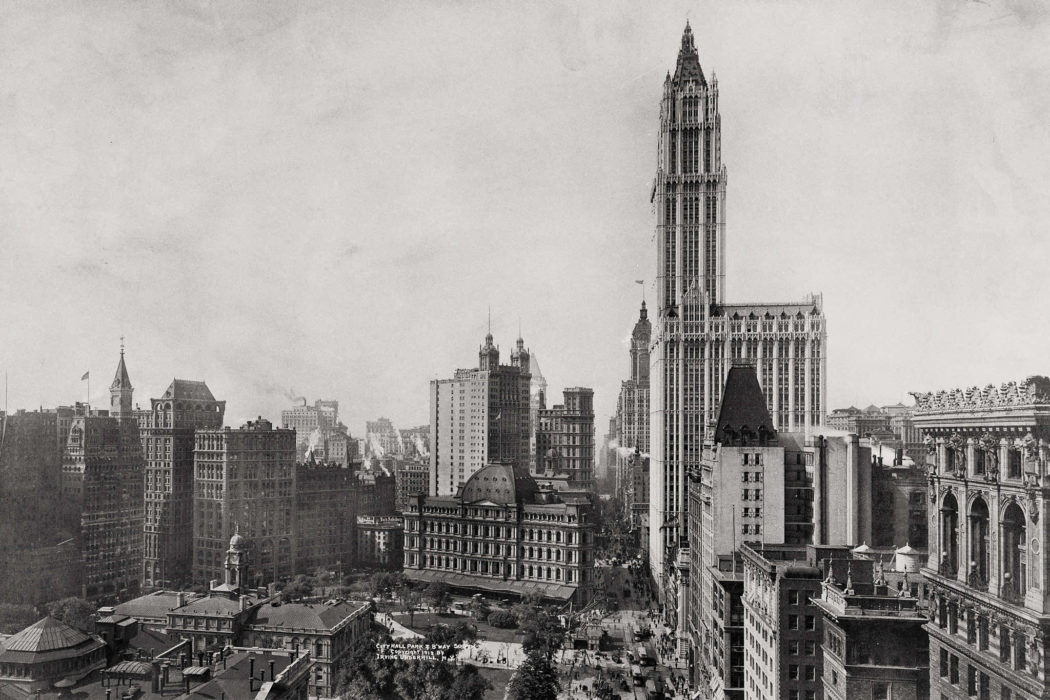‘ABDU’L-BAHÁ WAS TOO late. He was planning to leave America next Wednesday on the Mauretania, a four-funneled steamship of the Cunard line, the sister ship of the Lusitania. It would sail from its pier along the Hudson River at one o’clock in the morning on November 27, 1912, for Liverpool, England. But after spending much of the day in Montclair, New Jersey, on November 23, ‘Abdu’l-Bahá got back to New York too late to reach the ticket office, and missed making the booking. This meant that he would have to remain in New York for at least an extra week.
‘Abdu’l-Bahá had returned from Montclair to attend a farewell banquet organized for him in the ballroom of the Great Northern Hotel that evening. The hotel was built just three years ago, in 1909, and shone among the deteriorating structures just south of Central Park at 118 West Fifty-Seventh Street.
Two long rectangular tables, decorated with flowers and crystal glassware, occupied the center of the banquet hall. A smaller head table was laid at one end for ‘Abdu’l-Bahá, and round dinner tables surrounded them on both sides. Chandeliers hung down among the ballroom’s thick pillars. “The electric lighting reflected [off] the glassware and caused the whole room to shine brilliantly,” Mahmúd-i-Zarqání, one of ‘Abdu’l-Bahá’s secretaries, wrote. Two flags — the American flag and the Persian flag — were hung side by side at the front of the room.
As ‘Abdu’l-Bahá entered the ballroom, the guests rose from their seats. He began his address that evening by drawing contrasts between their meeting, a spiritual one, from those that promote material civilization, whether agriculture, industry, or scientific research, however beneficial these fields may be. “This meeting of yours tonight is very different in character,” ‘Abdu’l-Bahá told his guests. It was a divine gathering, because it “serves the oneness of the world of humanity and promotes international peace.”

“Consecrate and devote yourselves to the betterment and service of all the human race,” ‘Abdu’l-Bahá said. “Let no barrier of ill feeling or personal prejudice exist between these souls, for when your motives are universal and your intentions heavenly in character, when your aspirations are centered in the Kingdom, there is no doubt whatever that you will become the recipients of the bounty and good pleasure of God.”
Mahmúd-i-Zarqání figured that more than three hundred people attended the celebration. But not one of the guests had been black. Although the African American community had been invited, the hotel owner refused to let them enter the building. “If the people see that one colored person has entered my hotel,” Mahmúd heard him say, “no respectable person will ever set foot in it and my business will go to the winds.”
‘Abdu’l-Bahá moved quickly to remedy the situation. The next day, on November 24, he hosted a second banquet for the African American guests who had been denied entry. It was held at the home of Edward and Carrie Kinney, at 780 West End Avenue on the Upper West Side — where he had spoken many times and met many guests during his many weeks in New York.
Not only was it an interracial meeting, attended by both blacks and whites, but the blacks were graciously served by their white hosts. “Behold what an influence and effect the words of Bahá’u’lláh have had upon the hearts,” ‘Abdu’l-Bahá told them, “that hating and shunning have been forgotten and that prejudices have been obliterated to such an extent that you arose to serve one another with great sincerity.”






